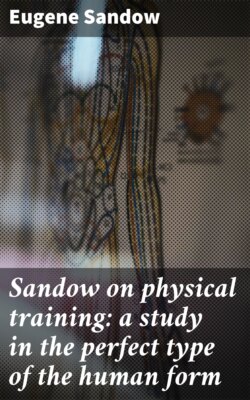Читать книгу Sandow on physical training: a study in the perfect type of the human form - Eugene Sandow - Страница 17
На сайте Литреса книга снята с продажи.
THE EMULATING EFFECT OF MIGHTY DEEDS.
ОглавлениеTable of Contents
The ancient classics give us well-nigh a surfeit of mighty heroes, whose deeds have been sung in noble epic or recited in stirring story. If many of these deeds are mythical, the classical student has not the less enjoyed the literary qualities in the story and the story-teller; nor have daring spirits, in the ages since, failed to find in both a stimulus to the accomplishment of feats of like prowess. In the swing and spirit of their telling, ardent natures have often caught fire, and done many a noble deed by emulating the spirit which even the recital of noble deeds inspire. England's battles have been won, it is a familiar saying, by the muscle-training which her youth acquire on the playgrounds of her great Public Schools. What they drink in, as with their mother's milk, of deeds of renown in their own noble history, as well as in the tradition of that of other nations—Greek, Roman, Teuton, and Scandinavian—may well fire the young heart to deeds of high emprise and great valour.
No lustre is so great, we know, as that which gilds the doing of a great deed. Back, however, of the doing of it, must be the courage which a consciousness of the ability to do the deed inspires. In this lies the moral value of physical training. We do not say, of course, that the intrepid mind waits to reason before throwing itself into the breach in the moment of jeopardy or peril. But is it not folly to hazard life in the performance of an act for the doing of which one has not the physical power, though one may have the courage? The man who is himself no swimmer will but court his own fate should he seek to save another from drowning. He who is most likely to stop a runaway horse in a crowded thoroughfare is the man who has both the muscle and the pluck to risk life in the effort. Nor is it safe to say that emergencies are infrequent for the instant
